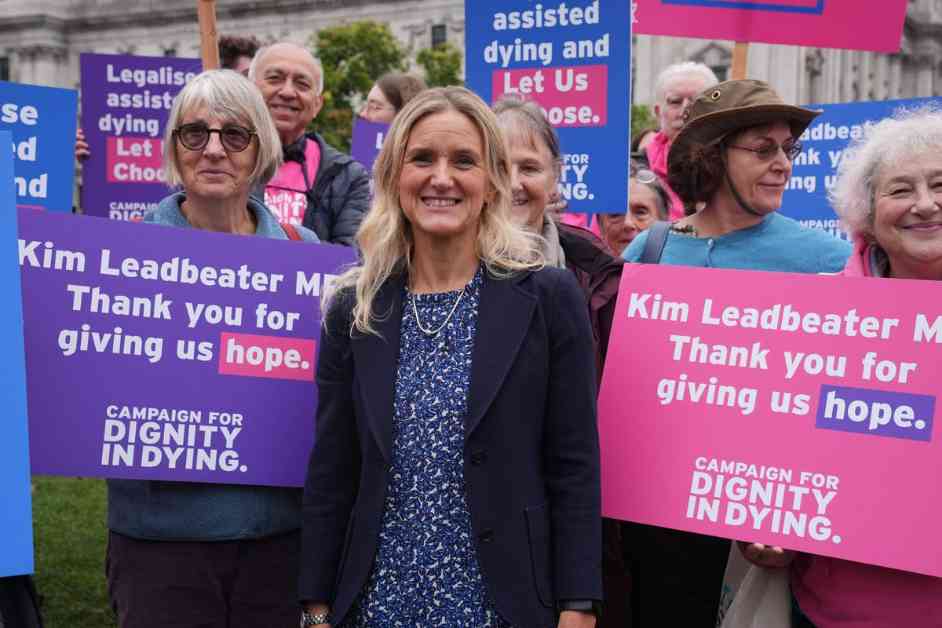Legalizing Assisted Dying for the Terminally Ill: A Controversial Debate
A bill proposing the legalization of assisted dying for mentally competent adults with a life expectancy of six months or less has sparked a heated debate in England and Wales. The proposed legislation, set to be published soon, has been described as the “safest choice” and the “strictest” in the world by MP Kim Leadbeater.
Under the bill, individuals with a settled wish to die that has been approved by two doctors and the High Court would be allowed to end their lives. However, strict safeguards have been put in place to prevent coercion or pressure. It would be illegal for anyone to persuade a person to declare their wish to die through dishonesty or induce them to self-administer drugs. Those found guilty of such actions could face up to 14 years in prison.
Critics of the proposed legislation argue that it is being rushed through without adequate time for scrutiny. The bill, likely to be over 40 pages long, has raised concerns about the potential for abuse and coercion. Health Secretary Wes Streeting has expressed his intention to vote against the bill, citing fears of people feeling a “duty to die”.
The Archbishop of Canterbury, Justin Welby, has also voiced his concerns about the legalization of assisted dying, warning of a “slippery slope” in terms of eligibility. High-profile supporters of the bill, including Dame Esther Rantzen, who is terminally ill herself, have emphasized the need for a change in the law.
MP Kim Leadbeater, the driving force behind the bill, has consulted widely with experts in the medical and legal fields, as well as individuals with personal experiences related to end-of-life care. She has emphasized the importance of providing strict safeguards to protect vulnerable individuals while also improving palliative care services.
However, organizations like Right To Life UK have criticized the proposed legislation, calling it “a disaster in waiting”. They argue that the bill poses a significant threat to vulnerable patients and undermines the trust the public places in physicians. Campaign group Our Duty of Care, representing healthcare professionals, has also raised concerns about the impact of legalizing assisted dying on society’s ability to safeguard vulnerable patients.
As the debate over the legalization of assisted dying continues, it is clear that there are strong opinions on both sides of the issue. While supporters believe that the bill offers a compassionate choice to individuals facing terminal illnesses, opponents raise valid concerns about the potential for abuse and coercion. Ultimately, the decision on whether to legalize assisted dying will have far-reaching implications for end-of-life care in England and Wales.












